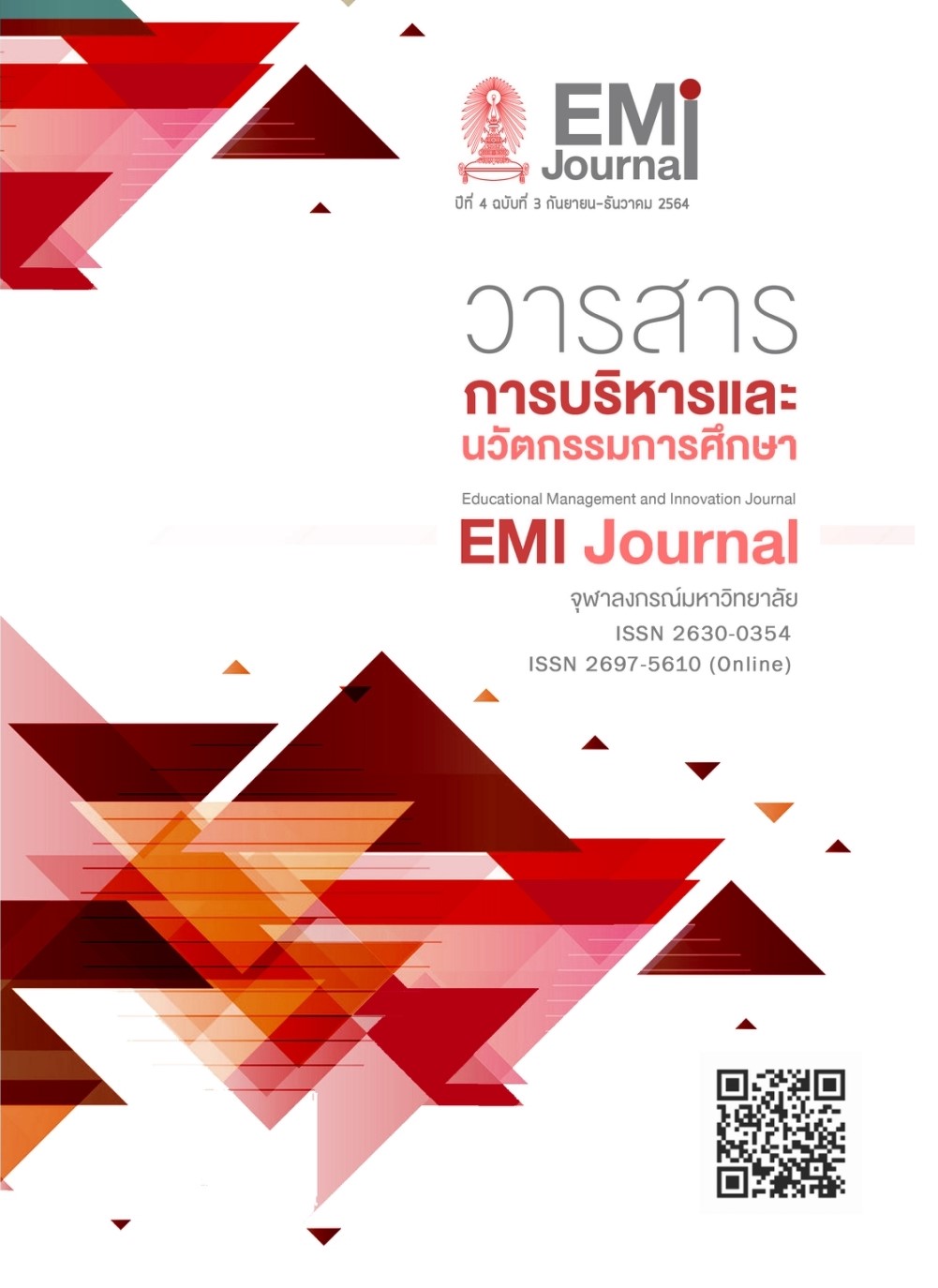รูปแบบการส่งเสริม กำกับและควบคุมการประกอบวิชาชีพ และจรรยาบรรณของวิชาชีพทางการศึกษา
รูปแบบการส่งเสริม กำกับและควบคุมการประกอบวิชาชีพ และจรรยาบรรณของวิชาชีพทางการศึกษา
คำสำคัญ:
รูปแบบการส่งเสริม กำกับและควบคุม, จรรยาบรรณของวิชาชีพทางการศึกษาบทคัดย่อ
การวิจัยครั้งนี้มีวัตถุประสงค์เพื่อพัฒนารูปแบบการส่งเสริม กำกับและควบคุมการประกอบวิชาชีพและจรรยาบรรณของวิชาชีพทางการศึกษา การวิจัยครั้งนี้ใช้วิธีการวิจัยเชิงพรรณนา โดยเก็บรวบรวมข้อมูลทั้งข้อมูลเชิงปริมาณและข้อมูลเชิงคุณภาพจากการวิเคราะห์เอกสาร การใช้แบบสอบถาม และการสัมภาษณ์ ผู้ให้ข้อมูลในการวิจัย คือ ผู้ประกอบวิชาชีพทางการศึกษาในสถานศึกษาและหน่วยงานทางการศึกษาต่าง ๆ จำนวน 11 กลุ่ม จำนวน 400 คน ผลการวิจัยมีดังนี้
รูปแบบการส่งเสริม กำกับและควบคุมผู้ประกอบวิชาชีพทางการศึกษา ประกอบด้วย 4 ส่วน คือ ส่วนที่ 1 ที่มาของรูปแบบ ได้แก่ 1) การส่งเสริมเชิดชูเกียรติวิชาชีพทางการศึกษา
2) การเชิดชูคุณธรรมปูชนียบุคคลของวิชาชีพทางการศึกษา 3) การสร้างศรัทธา วินัยและความรักต่อวิชาชีพของตนเอง 4) ความรับผิดชอบ 5) ปรัชญาเศรษฐกิจพอเพียง ส่วนที่ 2 หลักการของรูปแบบ ได้แก่ 1) การส่งเสริมให้ผู้ประกอบวิชาชีพทางการศึกษาปฏิบัติตามจรรยาบรรณของวิชาชีพทางการศึกษา 2) การกำกับและควบคุมจรรยาบรรณของวิชาชีพทางการศึกษาของ
ผู้ประกอบวิชาชีพทางการศึกษา ส่วนที่ 3 กระบวนการของรูปแบบ ได้แก่ 1) กระบวนการก่อนเข้าสู่วิชาชีพ 2) กระบวนการระหว่างอยู่ในวิชาชีพ และ 3) กระบวนการหลังออกจากวิชาชีพ และส่วนที่ 4 การนำรูปแบบไปใช้ ประกอบด้วยเงื่อนไขและข้อแนะนำสำหรับการนำรูปแบบไปใช้
Downloads
เอกสารอ้างอิง
Chianchana, C. (2017). Creating and Developing Model. Silpakorn Educational Research Journal, 9(1), 1-11.
Jeenawathana, A., & Daungkaew, R. (2015). The study of working conditions in with the practice and standards of persons engaged in educational professions. STOU Education Journal, 8(2), 44-60.
Krejcie, R.V., & Morgan, D.W. (1970). DETERMINING SAMPLE SIZE FOR RESEARCH ACTIVITIES. Educational and Psychological Measurement, 30, 607-610.
Maria, G., & Valts, K. (2017). ETINED Council of Europe Platform on Ethics. Transparency and Integrity in Education. Volume 4 Codes of conduct for teachers in Europe
a Background study. Council of Europe Publishing.
Nakorntup, A. (2014). Creating a culture of learning in all teachers. Comment from Academy of Singapore Teachers. SSK. Newsletters. No.165 Retrieved August, 9, 2017, from http://apps.qlf.or.th/member/UploadedFiles/prefix-15082557-104528-X1w4d6.pdf
Phengsawat, W. (2010). Research and Development of Model. SNRU Journal of Science and Technology, 2(4), 2-15.
Royal Thai Government Gazette. (2013). Regulations of the Teachers’ Council of Thailand on Code of Professional Conduct, B.E. 2556 (2013). Vol. 130 Special Part 130 D., pp. 65-74.
Rujiprak, V., & Asnachinda, E. (2016). Ethics of the teachers profession. Nakhon Pathom: Mahidol University.
Sithi-Amnuai, C. (2013, November, 23). Educational Management in the ASEAN Community: Foundation of Development. Document for educational management seminar. Hall 1, Chaloem Phrakiat Building, Dhurakij Pundit University.
The Teachers’ Council of Thailand. (2017). National Standards Act. Retrieved July, 10,
, from http://www.ksp.or.th/ksp2013/content/view.php?mid=136&did=253
The Office of the Permanent Secretary for Education. (2015). Annual education statistics 2015. Bangkok: the Welfare Promotion Commission for Teachers and Education Personnel Publishing, p. 32.
Thongpan, S., Dejamonchai, S., Darnsawasdi, C., & Tiemthanom, C. (2013). Pattern and Process Development in respect of the Enhancement of Morality, Virtue, Ethics and Code of Ethics of Persons engaged in Educational Professions. Journal of Liberal Art, 13(1), 61-76.
UNESCO. (2011). Patterns of development and use of codes of conduct for teachers in 24 countries. International Institute for Educational Planning.



